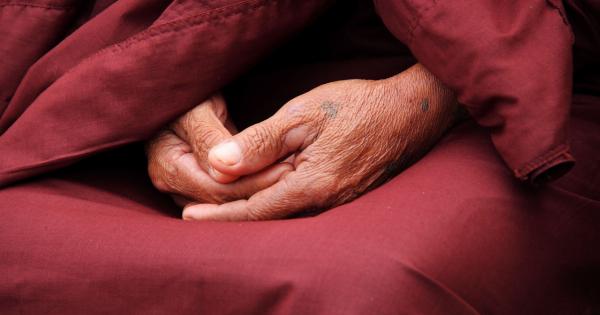Being single has been associated with several factors including individual preferences, societal norms and cultural expectations. However, recent research suggests that there might be a genetic factor that predisposes individuals to singledom.
This article delves into the relationship between genetics and singledom.
What is singledom?
For the purpose of this article, singledom refers to being single or living without a romantic partner. This is also known as solo living or living alone. Singledom is often associated with living a life of independence, freedom, and self-reliance.
While some people may choose to be single, others may find themselves in this situation due to various reasons such as personal choice, breakup, divorce or loss of a partner.
Genetics and singledom
There is growing evidence to suggest that genetics plays a role in an individual’s relationship status. Studies on twins have shown that genetic factors account for about a third of the variation in relationship status.
This means that genes influence the likelihood of an individual being single or not. Studies have also shown that individuals with a certain genetic make-up are more likely to remain single compared to others.
The ‘love hormone’ gene
The ‘love hormone’ gene or the Oxytocin receptor (OXTR) gene is known to affect an individual’s social and romantic behavior.
This gene is responsible for the production of oxytocin, a hormone that is associated with bonding, trust, and social attachment. Studies have shown that variations in this gene are linked to differences in relationship quality, attachment style, and social behavior.
Individuals with a specific variation of the OXTR gene are more likely to experience difficulty in forming close romantic relationships and are less likely to marry compared to those without this variation.
DRD4 gene
The dopamine receptor D4 (DRD4) gene is known to influence an individual’s behavior and personality. Variations in this gene have been linked to novelty-seeking behavior, risk-taking behavior, and lack of emotional stability.
Studies have shown that individuals with a certain variation of the DRD4 gene are more likely to engage in casual sex, have shorter relationships, and be less likely to marry. This suggests that the DRD4 gene may play a role in an individual’s reluctance to commit or stay in a long-term relationship.
HHT gene
The HHT gene is responsible for the production of a protein that regulates blood vessel growth.
Studies have shown that variations in this gene are associated with the development of arteriovenous malformations (AVMs) which are abnormal connections between arteries and veins that disrupt blood flow. Individuals with this variation of the HHT gene are more likely to develop AVMs which can cause neurological problems such as seizures and migraines.
Studies have also shown that individuals with AVMs are more likely to remain single compared to those without AVMs. This suggests that the predisposition to singledom in these individuals may be due to health concerns associated with neurovascular disorders.
The genetic link to personality traits
Personality traits such as extroversion, agreeableness, and conscientiousness have also been linked to an individual’s relationship status. Studies have shown that genes play a role in the development of these traits.
For example, the serotonin transporter (SLC6A4) gene has been linked to agreeableness and conscientiousness. Individuals with a variation of this gene are more likely to have low scores in these traits which can negatively affect their romantic relationships. The dopamine receptor D2 (DRD2) gene has also been linked to extroversion and neuroticism.
Individuals with certain variations of this gene are more likely to be introverted and anxious which can affect their ability to form close relationships.
Conclusion
In conclusion, genetics seem to play a role in an individual’s predisposition to singledom.
While the exact mechanism by which genes influence relationship status is still not fully understood, studies have shown that variations in specific genes can affect an individual’s personality traits, behavior, and social attachment. It is important to note that genetics is only one of many factors that contribute to an individual’s relationship status. Other factors such as cultural, social and economic factors also come into play.




























